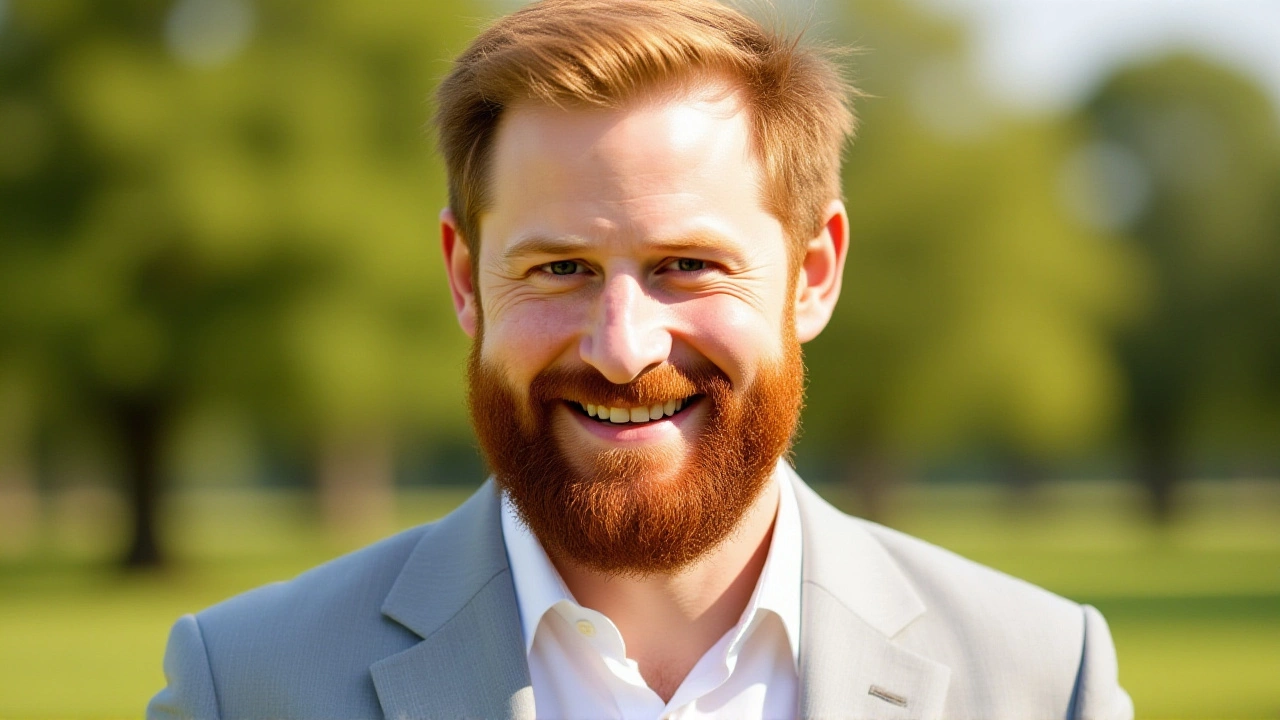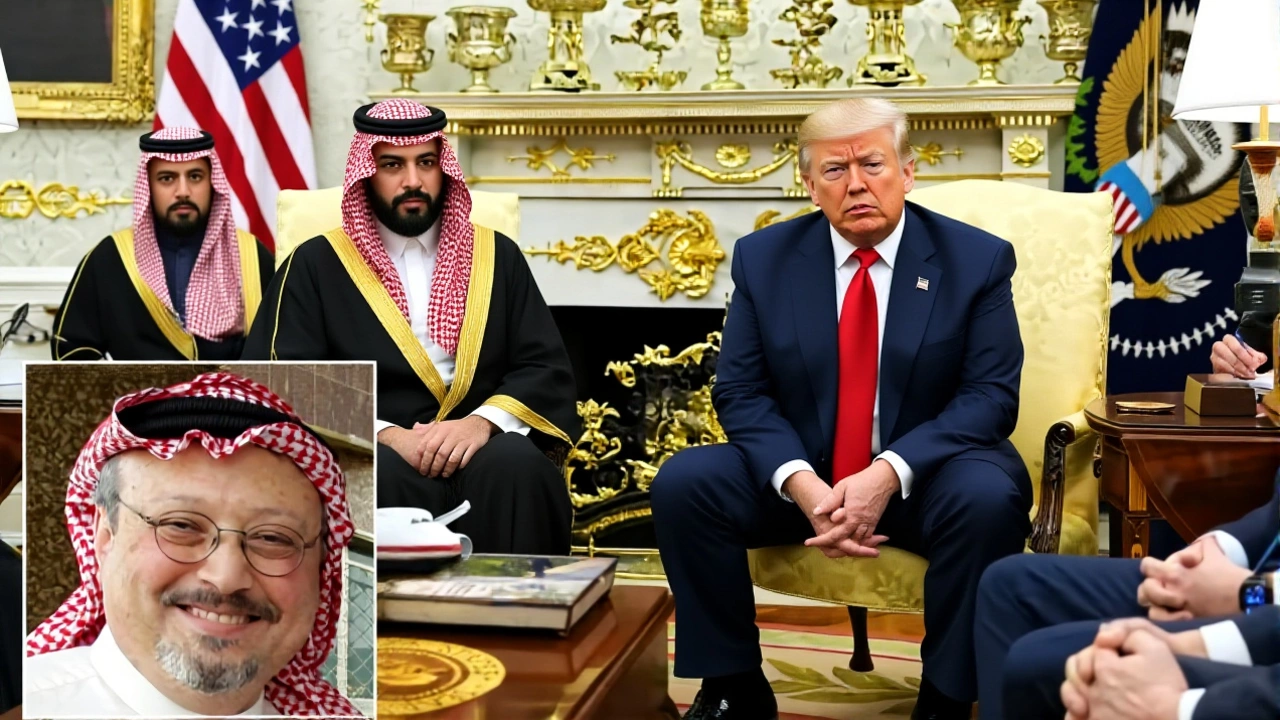When Reporters Without Borders condemned Donald J. Trump for brushing off the murder of Jamal Khashoggi, it wasn’t just about one journalist’s death — it was about the quiet erosion of press freedom worldwide. On November 20, 2018, RSF’s Secretary-General, Christophe Deloire, issued a searing rebuke from the organization’s Paris headquarters after Trump claimed during a White House briefing that Saudi Crown Prince Mohammed bin Salman “knew nothing” about the killing. The remark came just weeks after Khashoggi, a Washington Post columnist and U.S. resident, was dismembered inside the Saudi consulate in Istanbul on October 2, 2018. The chilling truth? U.S. intelligence had already concluded with “high confidence” that the crown prince ordered the operation. Trump’s dismissal didn’t just ignore facts — it legitimized them.
What Trump’s Words Meant for Journalists Everywhere
It’s one thing for a foreign leader to silence dissent. It’s another when the leader of the free world tells the world that such brutality is just “something that happens.” Deloire didn’t mince words: “By dismissing the Khashoggi murder with such cynicism, President Trump is legitimizing the repression of journalists everywhere.” That’s not hyperbole. In the 12 months before Khashoggi’s death, Saudi Arabia arrested 28 journalists. Twelve were tortured. At least 32 remained behind bars as of November 2018 — including Raif Badawi, sentenced to 1,000 lashes and 10 years for blogging about liberal reform. His crime? Questioning religious authority.
And it wasn’t just journalists. Activist Loujain al-Hathloul, detained since May 2018 for campaigning for women’s right to drive, reported being interrogated by the same team that killed Khashoggi — including Maher Mutreb, a diplomat stationed in Istanbul. The message was clear: no one is safe.
The Numbers Behind the Silence
RSF’s 2018 World Press Freedom Index placed Saudi Arabia at 169th out of 180 countries — a score of 29.50 out of 100. That’s not just bad. It’s catastrophic. The country’s Press and Publications Law, enacted in 2003, gives the state total control over media licenses — and they’ve revoked 17 since 2015. By early 2019, Saudi authorities had blocked 417 news sites, including Al-Jazeera and Middle East Eye. The 2017 Anti-Cyber Crime Law? It’s become the go-to tool: 87% of imprisoned journalists faced charges under it, with penalties up to five years per offense and fines of 3 million riyals — roughly $800,000.
And let’s not forget the arms deal. In May 2017, Trump’s administration finalized a $110 billion weapons sale to Riyadh. Deloire called it “a lifeline for repression.” Weapons sold to Saudi Arabia are now used in Yemen’s war — and also to intimidate journalists at home. As one RSF investigator told me, “You don’t need to kill a journalist if you can bankrupt their family with a fine or lock them up for five years for a tweet.”

How the U.S. Enabled the Crackdown
Trump’s comments weren’t an anomaly — they were part of a pattern. The U.S. State Department’s own 2017 Human Rights Report documented 1,195 political prisoners in Saudi Arabia, including 217 journalists and bloggers. Yet the U.S. continued military cooperation. The CIA’s 2018 assessment, declassified in February 2019, directly linked the prince to the murder. But the White House chose silence. Or worse — denial.
“When a U.S. president dismisses the murder of a journalist who wrote for an American newspaper,” Deloire warned, “it signals to every dictator that they can kill with impunity.” And they did. In the months after Khashoggi’s death, Saudi Arabia launched a new wave of arrests targeting female activists, academics, and even former royal family members who dared to speak out.
Legal Action and the Long Game
RSF didn’t stop at statements. On December 10, 2018, its legal team, led by Rebecca Vincent in London, filed a formal complaint with the International Criminal Court, accusing Saudi officials of crimes against humanity under Article 7 of the Rome Statute. The complaint detailed a systematic campaign against journalists since 2015 — torture, enforced disappearances, and extrajudicial killings.
It’s a long shot. The ICC rarely prosecutes powerful states. But the filing was symbolic — a paper trail for future accountability. And it sent a message: the world is watching. Even if Washington isn’t.

Why This Still Matters Today
Five years later, Saudi Arabia still ranks among the top 10 worst countries for press freedom. Khashoggi’s murder didn’t spark reform — it exposed how deeply complicity runs. The U.S. still sells arms to Riyadh. Journalists like Badawi remain imprisoned. And new laws continue to criminalize dissent under the guise of “national security.”
What happened in Istanbul wasn’t an isolated crime. It was a warning. And Trump’s response? A green light.
Frequently Asked Questions
Why did Trump’s comments about Khashoggi matter so much?
Trump’s dismissal of the murder undermined global norms on press freedom. As the world’s most powerful democracy, the U.S. sets a standard. When its president says a journalist’s killing is just “something that happens,” it signals to autocrats that they can act with impunity. RSF documented a spike in journalist arrests globally in 2019, directly correlating with the normalization of such rhetoric.
Who was Jamal Khashoggi, and why was he targeted?
Jamal Khashoggi was a Saudi journalist and U.S. resident who wrote critically for the Washington Post, advocating for political reform and human rights. He was targeted because he became a symbol of dissent after publicly criticizing Crown Prince Mohammed bin Salman’s consolidation of power. His columns reached millions, making him a threat to the regime’s narrative — not because he incited violence, but because he told the truth.
How many Saudi journalists are still imprisoned today?
As of 2023, at least 20 Saudi journalists and bloggers remain imprisoned, according to RSF and Human Rights Watch. Many are held under vague charges like “cybercrime” or “undermining national unity.” Raif Badawi, though partially released, still faces travel bans and financial penalties. Others, like Israa al-Ghomgham, remain on death row for protesting.
What role did the U.S. arms deal play in Saudi repression?
The $110 billion arms deal signed in May 2017 provided Saudi Arabia with precision-guided munitions, surveillance tech, and military training — tools later used to monitor activists and suppress dissent. RSF linked U.S.-made drones and hacking software to the surveillance of journalists. The deal wasn’t just business — it was political cover. It allowed Trump to prioritize profits over principles, emboldening repression.
Did the International Criminal Court take action on RSF’s complaint?
The ICC opened a preliminary examination in 2019 but has not yet launched a full investigation. The process is slow, and Saudi Arabia is not a signatory to the Rome Statute — complicating jurisdiction. Still, the complaint preserved evidence and kept international pressure alive. It’s now part of a growing body of documentation that could be used in future trials or sanctions.
What’s changed since 2018 in Saudi Arabia’s media landscape?
Very little. The government now uses digital tools — AI-driven censorship, social media monitoring, and deepfake disinformation — to silence critics more efficiently. While some activists have been released for PR purposes, the legal framework remains harsh. The 2017 Anti-Cyber Crime Law is still in force. Websites are still blocked. And journalists who speak out still vanish. The repression has evolved — but it hasn’t ended.
